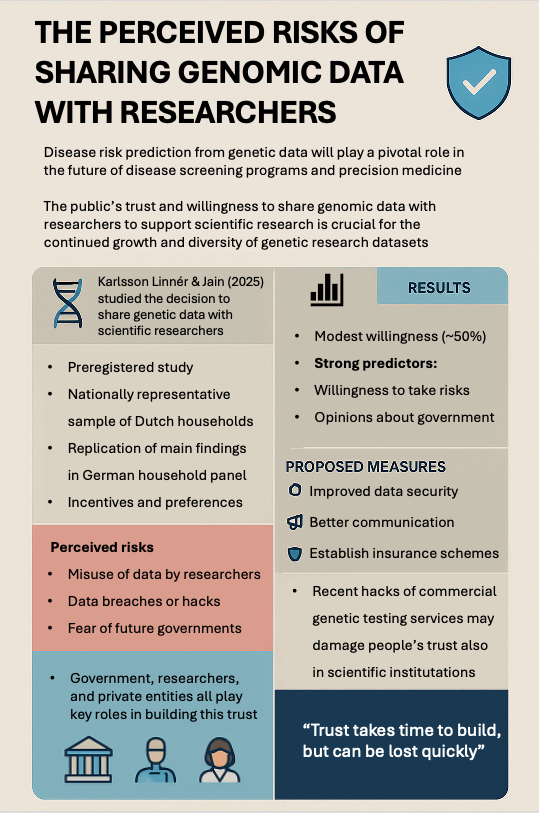About us
Learn how GA4GH helps expand responsible genomic data use to benefit human health.
Learn how GA4GH helps expand responsible genomic data use to benefit human health.
Our Strategic Road Map defines strategies, standards, and policy frameworks to support responsible global use of genomic and related health data.
Discover how a meeting of 50 leaders in genomics and medicine led to an alliance uniting more than 5,000 individuals and organisations to benefit human health.
GA4GH Inc. is a not-for-profit organisation that supports the global GA4GH community.
The GA4GH Council, consisting of the Executive Committee, Strategic Leadership Committee, and Product Steering Committee, guides our collaborative, globe-spanning alliance.
The Funders Forum brings together organisations that offer both financial support and strategic guidance.
The EDI Advisory Group responds to issues raised in the GA4GH community, finding equitable, inclusive ways to build products that benefit diverse groups.
Distributed across a number of Host Institutions, our staff team supports the mission and operations of GA4GH.
Curious who we are? Meet the people and organisations across six continents who make up GA4GH.
More than 500 organisations connected to genomics — in healthcare, research, patient advocacy, industry, and beyond — have signed onto the mission and vision of GA4GH as Organisational Members.
These core Organisational Members are genomic data initiatives that have committed resources to guide GA4GH work and pilot our products.
This subset of Organisational Members whose networks or infrastructure align with GA4GH priorities has made a long-term commitment to engaging with our community.
Local and national organisations assign experts to spend at least 30% of their time building GA4GH products.
Anyone working in genomics and related fields is invited to participate in our inclusive community by creating and using new products.
Wondering what GA4GH does? Learn how we find and overcome challenges to expanding responsible genomic data use for the benefit of human health.
Study Groups define needs. Participants survey the landscape of the genomics and health community and determine whether GA4GH can help.
Work Streams create products. Community members join together to develop technical standards, policy frameworks, and policy tools that overcome hurdles to international genomic data use.
GIF solves problems. Organisations in the forum pilot GA4GH products in real-world situations. Along the way, they troubleshoot products, suggest updates, and flag additional needs.
GIF Projects are community-led initiatives that put GA4GH products into practice in real-world scenarios.
The GIF AMA programme produces events and resources to address implementation questions and challenges.
NIF finds challenges and opportunities in genomics at a global scale. National programmes meet to share best practices, avoid incompatabilities, and help translate genomics into benefits for human health.
Communities of Interest find challenges and opportunities in areas such as rare disease, cancer, and infectious disease. Participants pinpoint real-world problems that would benefit from broad data use.
The Technical Alignment Subcommittee (TASC) supports harmonisation, interoperability, and technical alignment across GA4GH products.
Find out what’s happening with up to the minute meeting schedules for the GA4GH community.
See all our products — always free and open-source. Do you work on cloud genomics, data discovery, user access, data security or regulatory policy and ethics? Need to represent genomic, phenotypic, or clinical data? We’ve got a solution for you.
All GA4GH standards, frameworks, and tools follow the Product Development and Approval Process before being officially adopted.
Learn how other organisations have implemented GA4GH products to solve real-world problems.
Help us transform the future of genomic data use! See how GA4GH can benefit you — whether you’re using our products, writing our standards, subscribing to a newsletter, or more.
Join our community! Explore opportunities to participate in or lead GA4GH activities.
Help create new global standards and frameworks for responsible genomic data use.
Align your organisation with the GA4GH mission and vision.
Want to advance both your career and responsible genomic data sharing at the same time? See our open leadership opportunities.
Join our international team and help us advance genomic data use for the benefit of human health.
Discover current opportunities to engage with GA4GH. Share feedback on our products, apply for volunteer leadership roles, and contribute your expertise to shape the future of genomic data sharing.
Solve real problems by aligning your organisation with the world’s genomics standards. We offer software dvelopers both customisable and out-of-the-box solutions to help you get started.
Learn more about upcoming GA4GH events. See reports and recordings from our past events.
Speak directly to the global genomics and health community while supporting GA4GH strategy.
Be the first to hear about the latest GA4GH products, upcoming meetings, new initiatives, and more.
Questions? We would love to hear from you.
Read news, stories, and insights from the forefront of genomic and clinical data use.
Publishes regular briefs exploring laws and regulations, including data protection laws, that impact genomic and related health data sharing
Translates findings from studies on public attitudes towards genomic data sharing into short blog posts, with a particular focus on policy implications
Attend an upcoming GA4GH event, or view meeting reports from past events.
See new projects, updates, and calls for support from the Work Streams.
Read academic papers coauthored by GA4GH contributors.
Listen to our podcast OmicsXchange, featuring discussions from leaders in the world of genomics, health, and data sharing.
Check out our videos, then subscribe to our YouTube channel for more content.
View the latest GA4GH updates, Genomics and Health News, Implementation Notes, GDPR Briefs, and more.
22 Jul 2025
In this GA4GH Public Attitudes for Genomic Policy forum blog post, Dr. Richard Karlsson Linnér writes about his recent study, investigating the willingness of a sample of people in Dutch and German households to share their genomic data, based on levels of trust in scientific researchers, data security, and the safeguarding of personal information.

By Dr. Richard Karlsson Linnér (Universiteit Leiden, Netherlands)
Experts anticipate that disease risk prediction from genetic data will play a central role in the future of disease screening programmes and precision medicine. The accuracy of predicting a person’s disease risk from their genetic sequence has improved considerably in recent years, but there is still a long way to go before this technology can be considered for most common diseases and for people of all backgrounds. Continued growth in the number, size, and diversity of genetic research datasets and biobanks is crucial to achieving broad clinical utility. Such growth depends strongly on whether the public is willing to entrust researchers with sensitive genomic data. The efforts of the Global Alliance for Genomics and Health (GA4GH) Public Attitudes for Genomic Policy forum have been seminal in advancing our understanding of global attitudes toward the sharing of genomic and health data in different settings.
In a recently published study, Richard Karlsson Linnér and Manisha Jain (University of Wisconsin-Madison) further advance this line of research by investigating the decision to share one’s genetic data in support of scientific research in the intersection between the social sciences and health research¹. The main analysis studied the stated willingness in a nationally representative sample of Dutch households, and the main results were followed-up in a representative sample of German households. The central finding is that the overall willingness to share genetic data with researchers is modest (about 50 to 60%). Modest willingness may become a serious issue for the growth and unbiasedness of genetic research datasets, especially when it comes to encouraging the participation of already underrepresented social groups or other characteristics.
The study revealed that the people who report a higher willingness to take risks were substantially more willing to share their genetic data, followed by those with the opinion that the government should be permitted to store the DNA of its population. These factors can lead to volunteer bias, which hampers the generalisability of research findings. Furthermore, the study found nuances about the risks perceived by the participants, which were focused on a variety of risks related to data breaches and privacy violations, from researchers, the government or other authorities, or commercial interests (e.g. insurance companies or marketing).
The results made it clear that much work remains to address the risks perceived by respondents, which the study found could not be offset simply by offering a higher financial incentive for participation. Instead, the researchers propose additional measures to improve data security, recruitment, and communication materials, as well as the establishment of insurance schemes that would pay compensation in the unlikely, but possible, event that data falls into the wrong hands. The authors propose that more research is needed to investigate whether different types of insurance schemes could be successful in improving the participation rate. Considerable work remains to understand the specific risks perceived by underrepresented groups, whose attitudes and concerns are already difficult to survey (perhaps because of the risks specific to them or minorities in general).
Notably, about a month before the publication of the study, a market leader in consumer genetic testing filed for bankruptcy, raising a range of questions about the fate of the genetic data from millions of people stored in its system. The trust in this company had already been harmed by a data breach in 2023. Fortunately, the US judicial system did not permit a fire sale to the highest bidder. Instead, the sale was overseen by various consumer protection institutions (e.g. an ombudsman and the state attorney general). These events serve as lessons for the research community, as it is not impossible for institutes that collect and host genetic research datasets to run out of funding, which may increase the likelihood of a disorderly discontinuation of these datasets.
The actions of public institutions, researchers, and commercial entities all play key roles in building and maintaining trust. Trust takes time to build, but can be lost in an instant. The more protected the public feels in the safeguarding of their sensitive personal information, the more likely they will be to share genomic data with researchers in the future. This trust is essential for the continued growth of the genetic research datasets and biobanks required for further advances in genomic risk prediction and precision medicine.
Infographic:

References:
Disclosures:
The author declares having no conflict or financial interest related to this document.
The text was written by the author and then grammar checked by Copilot/GPT-4.1.
The infographic text was written by the author. The infographic layout, background colors, and symbols were drafted by GPT-4.o.
Applicable license: CC BY 4.0.